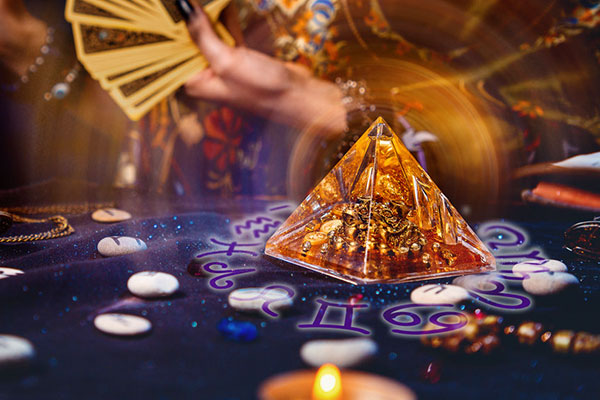psychic advisor
Getting To The Core Energy Of The Matter
 Relationships and life situations can take many confusing twists and turns and it’s easy to get lost in the behavior or chaos of the moment.
Relationships and life situations can take many confusing twists and turns and it’s easy to get lost in the behavior or chaos of the moment.
One of the many benefits of a good psychic reading is the clarity it can bring.
Getting to the heart of the matter involves the psychic advisor looking at your core energy. Your core energy is the root of you. It is the true you, complete with your innate gifts, skills and talents.
Layered on top of that are your experiences, challenges, fears, childhood wounds and past relationships gone wrong. The more scars there are on this layer, the thicker it is and the more it impacts your choices, decisions and behavior.
A psychic reader will use her skill set to discern what is really going on underneath for all parties involved. The psychic will get ‘inside’ and find out what is limiting the success of the relationship, or situation.
This is why an advisor may often bring forward information about you, or the subject, that you did not necessarily ask for, but is relevant to increasing your understanding and finding resolution to your situation.
Information always comes forward for a reason during a reading. Cutting through what is happening on the surface, the fight, the issue with family or work, allows the advisor to share information that creates long-term solutions, greater understanding and awareness of what others are thinking, feeling and why they are acting a certain way.
The Power Of Psychic Prediction
 The future is fluid and dynamic, and responds to the forces of the present moment. Feeling peaceful, grounded and centered in the present moment is a feeling we all strive to experience every day, but the challenges of life often pulls in memories of the past, and worries about the future.
The future is fluid and dynamic, and responds to the forces of the present moment. Feeling peaceful, grounded and centered in the present moment is a feeling we all strive to experience every day, but the challenges of life often pulls in memories of the past, and worries about the future.
Thoughts of the future can bring up fear and anxiety as we face the unknown, especially when viewed through current life challenges. In such challenging times you may want to consider reaching out to a psychic advisor, for clarity and support in navigating the path ahead. In my own life I have valued the support of a trusted fellow psychic advisor, especially during emotional and challenging times.
We all experience difficult times, and having someone hold a vision for us about our future path can be highly valuable. Someone to see the divine order in unforeseen events, and show us a way through the uncertainty, despite the challenges and broken pieces of the present. This reassurance helps to strengthen our resolve and belief in ourselves and our future.
As a psychic reader, I have great awareness of the power of a prediction. I believe that the true gift in a prediction is that they can provide a preparedness for the journey ahead, and they can anchor us in faith and hope. Faith is to have trust in something or someone, and it is a source of comfort.
Asking the Divine about the likelihood of future outcomes shows an open-heartedness and desire to see beyond the current. It also says to the Divine, show me the way. Guide me the vision, so that I may walk with more clarity and an open mind and heart.
Life-Changing Success Stories From Psychic Readings
 At Psychic Access, we’ve had the honor of supporting thousands of clients over the past 20 years as they navigate life’s many challenges and transitions. Time and again, we have witnessed how just a single reading can be a powerful turning point in someone’s life.
At Psychic Access, we’ve had the honor of supporting thousands of clients over the past 20 years as they navigate life’s many challenges and transitions. Time and again, we have witnessed how just a single reading can be a powerful turning point in someone’s life.
Our gifted team of psychics and mediums offer clarity when life feels confusing and provide compassionate, nonjudgmental support when people need it most. Whether they contact us during a time of heartbreak, confusion, loss, stress, or simply out of curiosity, our mission is to help them feel more empowered and inspired by the end of every call.
For some, a reading can provide the validation needed to trust their gut or follow their heart. For others, it provides the motivation to take action, or release what no longer serves them. It is also not uncommon for there to be tears of sadness, and of joy.
Many of these breakthrough moments are powerful realignments that reconnect the heart, mind, and soul with the higher self, spirit and the divine. A reading with a skilled psychic illuminates the next step on one’s path.
Though each person’s journey is unique and personal, familiar themes echo in the success stories we witness every day: courage, awakening, healing, forgiveness, renewal, peace, prosperity.
Many of these experiences are simply too good not to share. So, we asked some of our long-time, most loyal clients if we could share some of the feedback and messages we’ve received from them in the hope of inspiring others facing similar challenges. Their names have been redacted, and potentially identifying details have been changed, to protect their privacy.
Soul To Soul Connection In The Digital Age
 In recent years, artificial intelligence (AI) has made significant strides in mimicking human interaction. From chatbots that answer customer service questions to AI-generated horoscopes and tarot spreads, technology is omnipresent, even within the spiritual community.
In recent years, artificial intelligence (AI) has made significant strides in mimicking human interaction. From chatbots that answer customer service questions to AI-generated horoscopes and tarot spreads, technology is omnipresent, even within the spiritual community.
However, there’s a clear distinction between simulated interaction and a genuine spiritual connection. AI can scan data, detect patterns, and even “learn” to mimic language and tone. However, it lacks two essential components: a heart, and a soul.
Technology may be evolving faster than ever before, but some things will always be fundamentally human and spiritually profound. When seeking comfort, clarity, or connection, the presence of another person makes all the difference.
AI is here to stay, and in many areas, it brings undeniable benefits. But when it comes to your spiritual journey, there’s a reason people have turned to seers, mediums, and mystics for centuries. There’s a wisdom that flows only through human heart, mind and soul, a depth of understanding that no algorithm or “for you page” can match.
At PsychicAccess.com, true guidance is more than just data. It’s a dialogue of transpersonal empathy, spiritual insight and divine wisdom. Live readings with our expert psychics or mediums offer something AI can’t replicate: real, soulful exchanges that honor your journey and speak directly to your spirit.
When you choose a live reading with one of our gifted psychics, you’re choosing more than information. You’re choosing personal transformation. You’re stepping into a sacred space where you can be seen, heard, and guided with compassion and truth. Continue reading
A Psychic Reading Brings Order To Chaos
 In a typical lifetime the sun will pass over us twenty-five thousand times. If you were to walk just one mile due west each and every day of your life (if such a journey by land were possible) your life would end at the place it began.
In a typical lifetime the sun will pass over us twenty-five thousand times. If you were to walk just one mile due west each and every day of your life (if such a journey by land were possible) your life would end at the place it began.
Just one mile every day, at a most comfortable stroll, you will have experienced more than anyone, and lived the dreams of most. Instead of merely waiting and watching the sun and time pass by.
If we walk slowly through life, but with purpose, we will see more, travel farther on less energy, and allow others more time to get out of our way. But occasionally, we will meet immovable objects in our path, and a decision on which way to turn must then be made.
Having a precise destiny in mind is challenging in itself, so making the right decisions along the way is essential to ensure our safe arrival at our intended destination.
In my own journey, I remind myself to smile demurely at those skeptical of what I do, even if their cynicism always surprises me, as we all foresee the future all the time.
For example, watching a carefree child at play, unaware in the midst of their joy of the likelihood, the inevitability of a fall sometimes becomes apparent and very clear to those with experience looking on.
The fact that some of us are able to see more, and in more detail, and further into the future, should therefore not be so impossible to conceive – as disconcerting or uncomfortable as this may be to the doubter.

